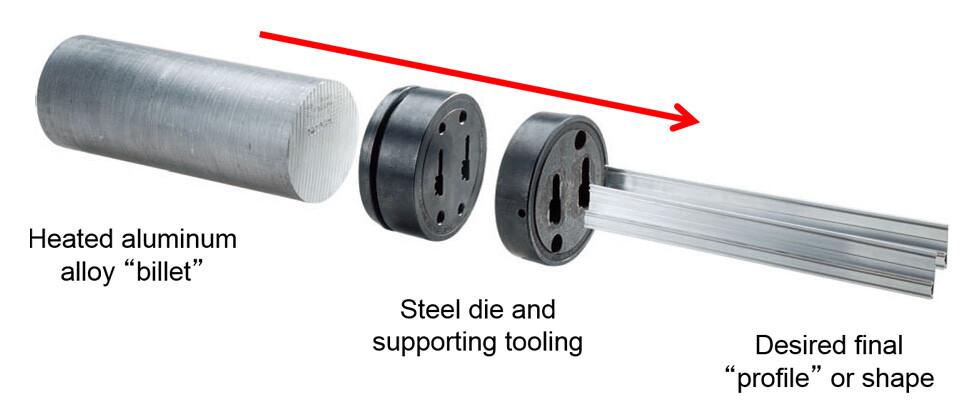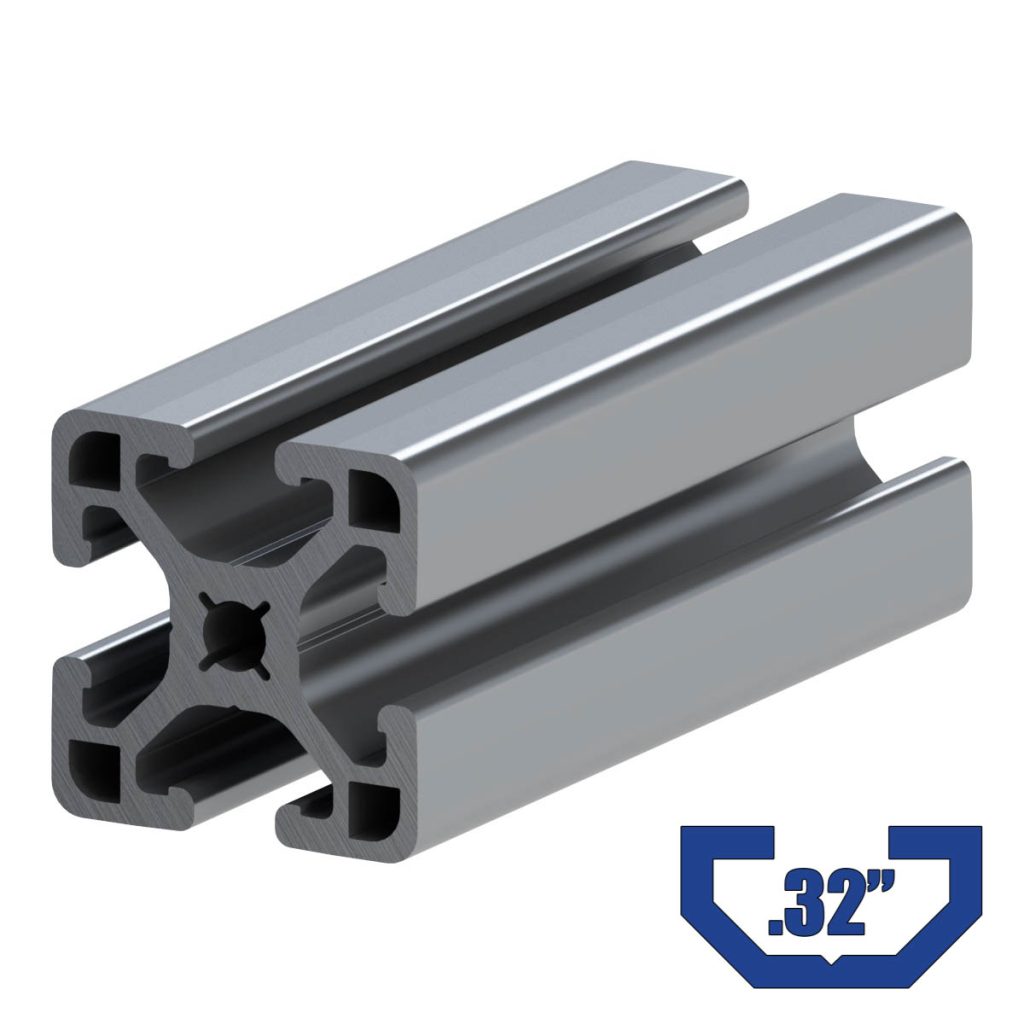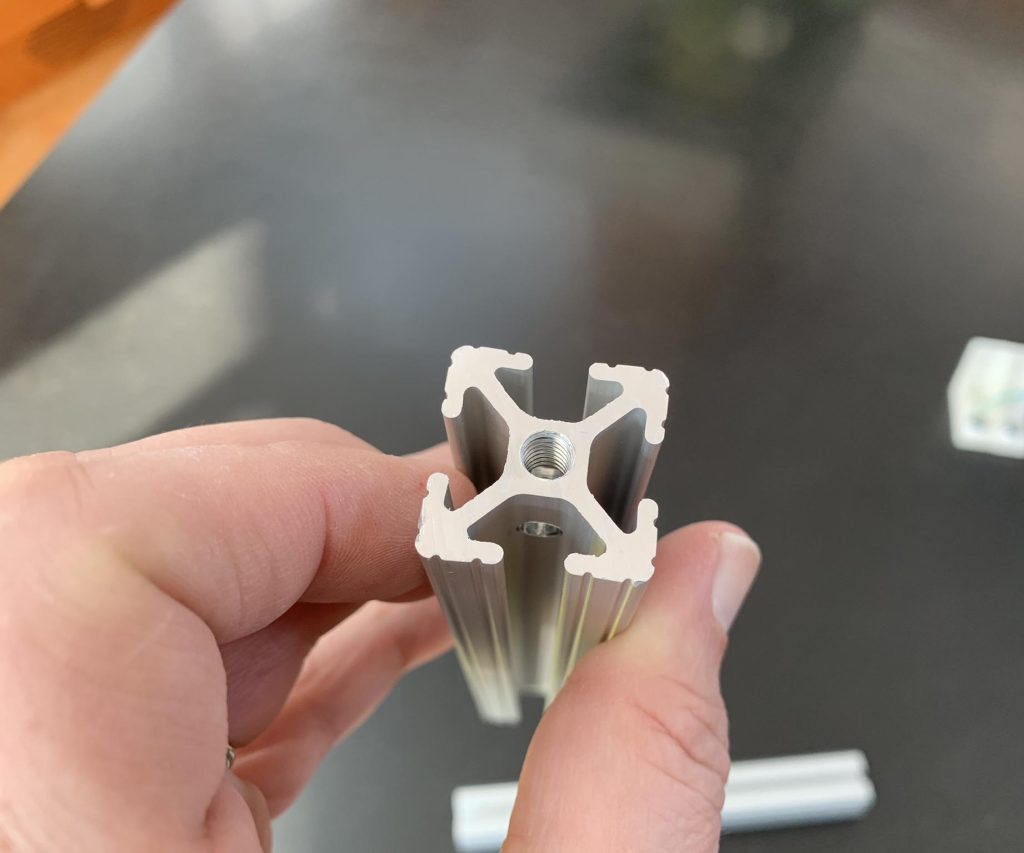Table of Contents
- Frequently Asked Questions
- 1. Is extruded aluminum strong enough for a support beam?
- 2. How does extruded aluminum compare to other materials for support beams?
- 3. What are the typical applications of extruded aluminum support beams?
- 4. Can extruded aluminum support beams withstand extreme temperatures?
- 5. What factors should be considered when designing an extruded aluminum support beam?
Extruded aluminum has become a popular material for various construction applications due to its high strength-to-weight ratio, corrosion resistance, and durability. However, when it comes to support beams, there are concerns regarding its strength and load-bearing capacity. So, the question arises: Is extruded aluminum strong enough to be used as a support beam?
To answer this question, we need to delve deeper into the properties of extruded aluminum and its application in construction. In this article, we will explore the strengths and limitations of extruded aluminum as a support beam and examine the factors that affect its load-bearing capacity. So, let’s dive in and find out if extruded aluminum is a suitable option for your next construction project.
Is Extruded Aluminum Strong Enough for a Support Beam?
Yes, extruded aluminum is strong enough to be used as a support beam. In fact, aluminum has a high strength-to-weight ratio and is resistant to corrosion, making it a popular choice for construction projects. However, the specific design and engineering requirements of the support beam should be taken into consideration to ensure that the extruded aluminum is suitable for the load-bearing capacity needed.
Is Extruded Aluminum Strong Enough for a Support Beam?
When it comes to building structures, support beams are essential for providing stability and strength. While traditional materials like wood and steel have been the go-to for decades, extruded aluminum has emerged as a viable alternative. But is extruded aluminum strong enough for a support beam? Let’s take a closer look.
What is Extruded Aluminum?
Extruded aluminum is a type of aluminum that has been processed through a manufacturing process called extrusion. This involves heating aluminum billets and forcing them through a die to create a specific shape. The result is a strong, durable, and lightweight material that can be used in a wide range of applications.
Strength of Extruded Aluminum
Extruded aluminum is known for its strength and durability. In fact, it has a higher strength-to-weight ratio than steel, making it an ideal choice for support beams. This is due to the unique properties of aluminum, including its high tensile strength, which makes it resistant to bending and breaking.
Benefits of Extruded Aluminum Support Beams
There are several benefits to using extruded aluminum for support beams. Firstly, it is lightweight, making it easy to transport and install. Additionally, it is more resistant to corrosion than other materials, meaning it can withstand harsh environments without deteriorating. Extruded aluminum is also highly customizable, allowing for unique designs and shapes to be created.
Extruded Aluminum vs. Steel Support Beams
While steel has been the traditional material for support beams, extruded aluminum offers several advantages. Firstly, extruded aluminum is lighter than steel, making it easier to handle and transport. It is also more resistant to corrosion, meaning it can last longer in harsh environments. Additionally, extruded aluminum is more customizable than steel, allowing for unique designs and shapes to be created.
Cost Comparison
One of the main advantages of steel over extruded aluminum is the cost. Steel is generally cheaper than extruded aluminum, making it a more cost-effective option for larger projects. However, extruded aluminum may be a better long-term investment, as it is more resistant to corrosion and requires less maintenance.
Strength Comparison
When it comes to strength, extruded aluminum is comparable to steel. In fact, it has a higher strength-to-weight ratio than steel, meaning it can handle the same amount of weight while being lighter. This makes it an ideal choice for projects where weight is a concern, such as bridges or buildings with limited load-bearing capacity.
Conclusion
In conclusion, extruded aluminum is a strong and durable material that can be used for support beams. While it may not be the cheapest option, it offers several advantages over traditional materials like steel. Ultimately, the decision to use extruded aluminum will depend on the specific needs and requirements of the project.
Frequently Asked Questions
Extruded aluminum is a popular material for support beams due to its lightweight and durability. However, some may question its strength compared to other materials. Here are some commonly asked questions and answers about the strength of extruded aluminum for support beams.
1. Is extruded aluminum strong enough for a support beam?
Yes, extruded aluminum can be strong enough for a support beam. The strength of extruded aluminum depends on various factors such as the alloy used, the shape of the beam, and the load it needs to support. Extruded aluminum beams can be designed to meet the required strength and stiffness for a specific application.
Moreover, extruded aluminum beams have a high strength-to-weight ratio. This means that they can support heavy loads while being lightweight, making them ideal for applications where weight is a concern.
2. How does extruded aluminum compare to other materials for support beams?
Extruded aluminum can be stronger or weaker than other materials depending on the specific application. For instance, steel beams may be stronger than aluminum beams for heavy-duty applications. However, extruded aluminum beams have advantages over steel, such as being more lightweight, corrosion-resistant, and easier to install.
On the other hand, wooden beams can be weaker than extruded aluminum beams and may require more maintenance. In summary, the choice of material for a support beam depends on the specific application and the required strength, weight, and durability.
3. What are the typical applications of extruded aluminum support beams?
Extruded aluminum support beams have a wide range of applications due to their strength, durability, and versatility. Some common applications include roof trusses, building frames, bridges, and industrial machinery. Extruded aluminum beams can also be used for decorative purposes where a lightweight and sleek design is desired.
Moreover, extruded aluminum beams can be fabricated into various shapes and sizes, making them suitable for custom applications such as curved beams or irregular-shaped structures.
4. Can extruded aluminum support beams withstand extreme temperatures?
Yes, extruded aluminum support beams can withstand extreme temperatures. The melting point of aluminum is around 660°C (1220°F), which is higher than the typical temperatures encountered in most applications. Moreover, extruded aluminum can have a high thermal conductivity, which means that it can dissipate heat quickly and efficiently.
However, if the application requires exposure to extreme temperatures or fire, it may be necessary to use specialized coatings or alloys that can withstand higher temperatures.
5. What factors should be considered when designing an extruded aluminum support beam?
Several factors should be considered when designing an extruded aluminum support beam. These include the load it needs to support, the span of the beam, the shape and size of the beam, and the required strength and stiffness. Other factors to consider may include the environment where the beam will be installed, such as exposure to weather or corrosive substances.
Moreover, the design should comply with applicable codes and safety standards to ensure the structural integrity and safety of the building or structure. Consulting with a professional engineer or architect can help ensure that the design meets the required specifications and regulations.
In conclusion, extruded aluminum can indeed be strong enough for a support beam. However, it ultimately depends on the specific application and loads that the beam will be subjected to.
Firstly, extruded aluminum can have a high strength-to-weight ratio, making it a desirable choice for applications where weight is a concern. Additionally, extruded aluminum can be designed and engineered to meet specific strength requirements, making it a versatile material.
However, it’s important to note that extruded aluminum may not be the best choice for extremely heavy loads or applications where the beam will be subjected to significant bending or twisting forces. In these cases, alternative materials such as steel or wood may be more appropriate.
Overall, when considering whether extruded aluminum is strong enough for a support beam, it’s important to consult with a knowledgeable engineer or professional to ensure that the material and design are appropriate for the specific application.
Request a quote today!
[contact-form-7 id="1578" title="Contact form"]
Please compress the file into a ZIP or RAR file before uploading. Alternatively, send through your RFQ by email.
enquires@unitymanufacture.com





